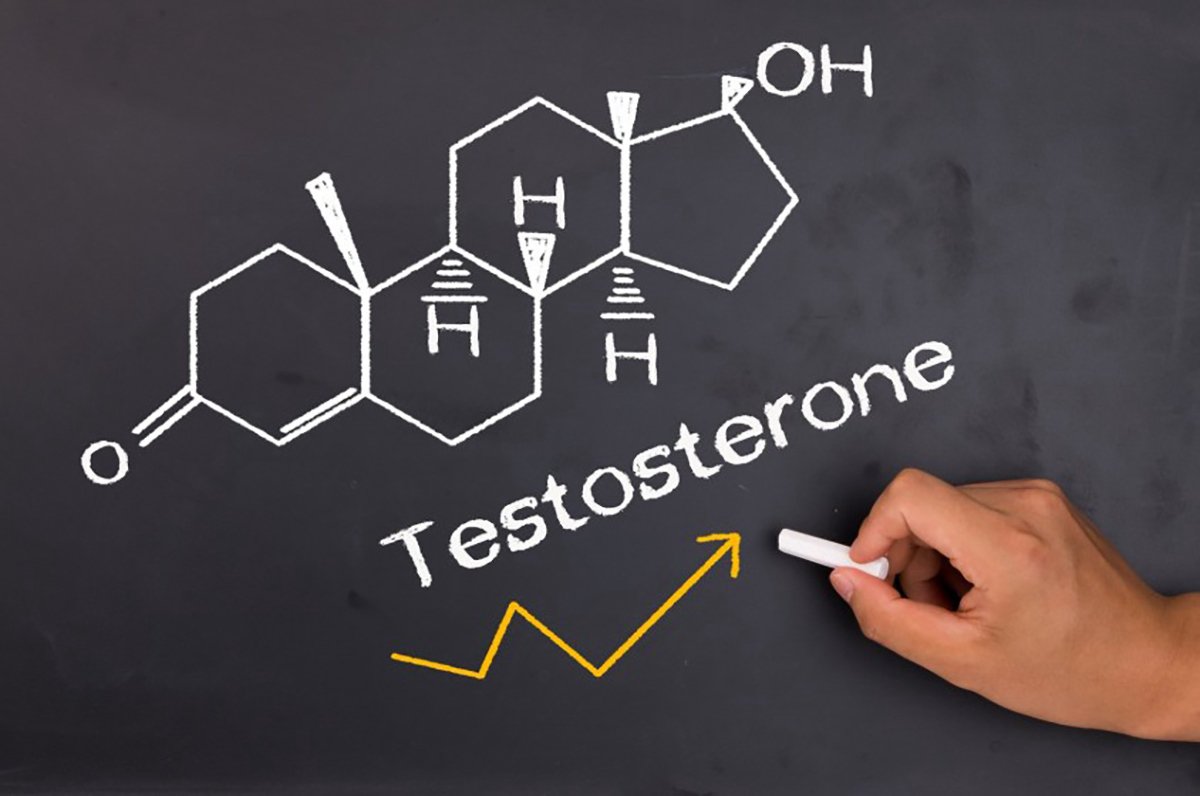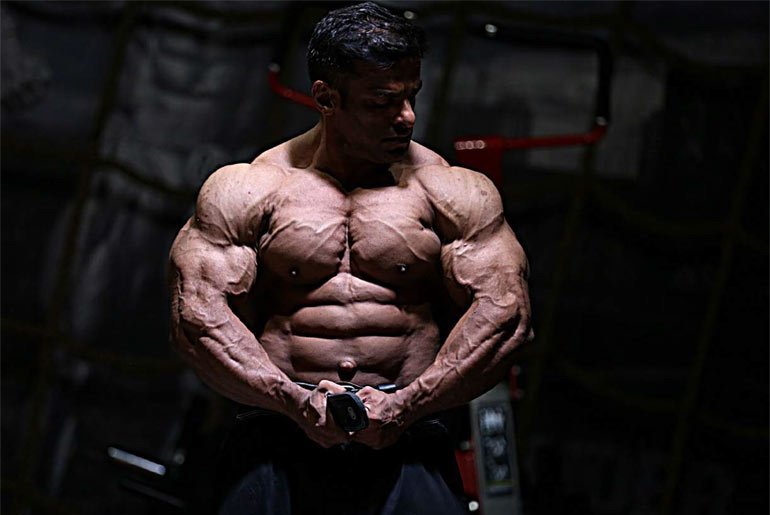Testosterone, often referred to as the king of hormones, plays a critical role in the development of muscle mass, strength, and overall vitality. For athletes, bodybuilders, and men looking to optimize their physical performance, understanding the importance of testosterone is essential. This naturally occurring hormone not only helps build muscle but also boosts energy, enhances mood, and supports overall health. If you’re looking to maximize your gains and feel your best, ensuring optimal testosterone levels should be a top priority.

What is Testosterone?
Testosterone is a hormone primarily produced in the testes in men and in smaller amounts in women’s ovaries. It is the primary male sex hormone responsible for developing male characteristics such as muscle mass, bone density, body hair, and a deep voice. In addition to these physical traits, testosterone plays a significant role in regulating libido, mood, and energy levels.
Key Functions of Testosterone:
- Muscle Growth and Strength: Testosterone increases muscle mass by boosting protein synthesis in muscle cells, making it crucial for anyone looking to gain strength and size.
- Fat Distribution: Testosterone helps regulate body fat distribution, preventing excessive fat accumulation while promoting lean muscle.
- Bone Density: Higher levels of testosterone support strong bones, reducing the risk of osteoporosis.
- Mood and Energy Levels: Balanced testosterone levels can lead to improved mood, increased energy, and a general sense of well-being.
How Testosterone Impacts Muscle Building
When it comes to bodybuilding and fitness, testosterone is one of the most important hormones for achieving your goals. It stimulates muscle growth by increasing the rate at which your body synthesizes proteins, the building blocks of muscle tissue. Higher testosterone levels make it easier to gain muscle mass, recover from workouts, and increase overall strength.

Muscle-Building Benefits:
- Enhanced Protein Synthesis: Testosterone increases the body’s ability to synthesize proteins, allowing for faster muscle growth and recovery.
- Improved Strength: Higher testosterone levels correlate with increased muscle strength, allowing you to lift heavier and push your workouts to new limits.
- Fat Loss: Testosterone helps reduce body fat by promoting lean muscle growth, which increases your metabolic rate.
Signs of Low Testosterone
As men age, testosterone levels naturally decline. However, this decrease can lead to a variety of unwanted symptoms that affect both physical and mental well-being. Recognizing the signs of low testosterone is important for those looking to maintain optimal health and performance.

Common Symptoms of Low Testosterone:
- Decreased Muscle Mass: Struggling to gain or maintain muscle despite regular exercise can be a sign of low testosterone.
- Increased Body Fat: A drop in testosterone can lead to fat accumulation, particularly around the abdomen.
- Fatigue and Low Energy: Feeling constantly tired and lacking the energy to perform at your best could be linked to low testosterone.
- Mood Changes: Low testosterone levels can lead to mood swings, irritability, and even depression.
- Reduced Libido: A diminished sex drive is one of the most common indicators of low testosterone.
How to Naturally Boost Testosterone
For those experiencing low testosterone or wanting to maximize their muscle-building potential, there are several natural ways to increase testosterone levels. Incorporating certain lifestyle changes can make a significant difference in your testosterone production.
Natural Ways to Increase Testosterone:
- Strength Training: Engaging in regular resistance training, particularly compound movements like squats and deadlifts, can stimulate testosterone production.
- Adequate Sleep: Getting 7-8 hours of quality sleep each night is essential for maintaining healthy hormone levels, including testosterone.
- Healthy Diet: A balanced diet rich in proteins, healthy fats, and essential vitamins like vitamin D and zinc can support testosterone production.
- Stress Management: High levels of stress can lead to increased production of cortisol, a hormone that negatively affects testosterone. Practicing stress-reducing techniques like meditation or deep breathing can help balance hormone levels.
- Maintain a Healthy Weight: Obesity is linked to lower testosterone levels, so maintaining a healthy weight through diet and exercise is crucial for optimal testosterone levels.

Testosterone Replacement Therapy (TRT)
For individuals with clinically low testosterone levels, Testosterone Replacement Therapy (TRT) is a medical treatment option. TRT involves supplementing the body with testosterone through injections, gels, or patches to bring hormone levels back to a healthy range. While this treatment is effective, it’s important to consult with a healthcare provider to determine if it’s the right option for you.
Benefits of TRT:
- Increased Muscle Mass: TRT can help restore testosterone levels, leading to improved muscle mass and strength.
- Improved Mood and Energy: Many men experience improved mood, higher energy levels, and increased libido with TRT.
- Better Bone Health: TRT can help maintain bone density, reducing the risk of fractures and osteoporosis.
Potential Side Effects of Testosterone Supplements
While testosterone supplements and therapies can be beneficial, they also come with potential side effects, particularly when used improperly or without medical supervision.
Common Side Effects:
- Acne and Oily Skin: Increased testosterone levels can lead to acne, especially on the back and shoulders.
- Mood Swings: High doses of testosterone can cause irritability or mood fluctuations.
- Suppressed Natural Testosterone Production: When the body is supplied with external testosterone, it may reduce its natural production, which can lead to long-term imbalances.
- Cardiovascular Risks: Some studies suggest that testosterone therapy may increase the risk of cardiovascular issues in certain individuals.
The Importance of Balanced Testosterone Levels
While testosterone is crucial for muscle building, too much of it can lead to unwanted side effects. It’s essential to maintain balanced testosterone levels for optimal health and performance. Working with a healthcare provider to monitor and manage your testosterone levels can help ensure you’re getting the benefits without the risks.

Final Thoughts
Testosterone plays an undeniable role in muscle growth, fat loss, and overall health. Whether you’re an athlete looking to gain a competitive edge or someone looking to maintain a fit and healthy body, optimizing your testosterone levels can help you achieve your goals. By incorporating natural lifestyle changes or, in some cases, considering TRT, you can boost your testosterone levels and unlock your full potential.
Achieve greater strength, lean muscle, and vitality by harnessing the power of testosterone—the key to building a stronger, healthier body.
Keywords: testosterone, muscle growth, fat loss, testosterone replacement therapy, strength training, natural testosterone boosters, hormone health, bodybuilding.





